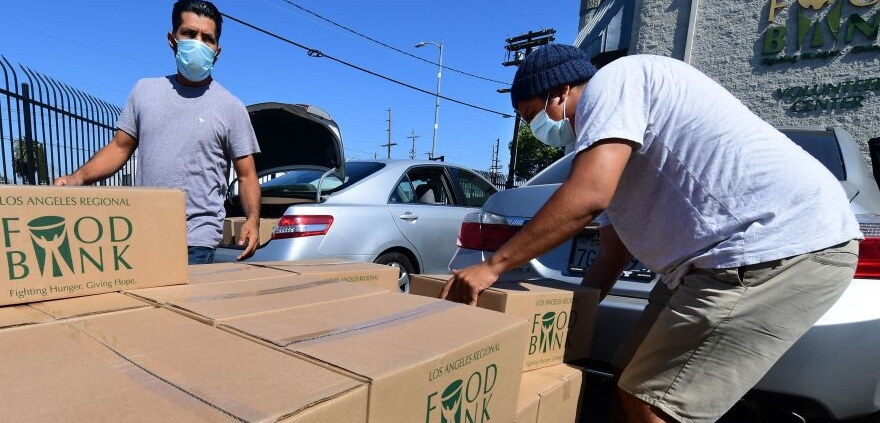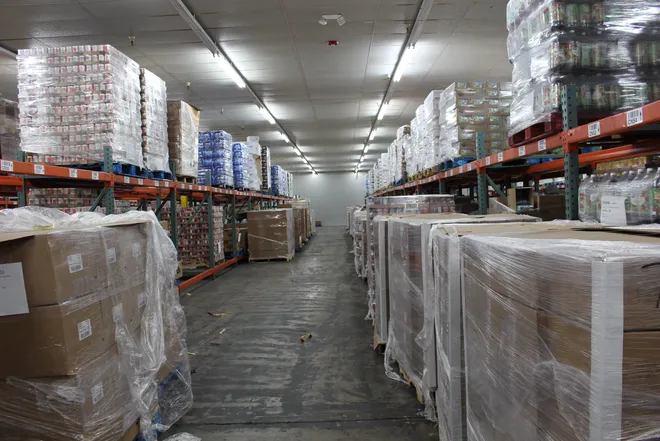How Local Farms and Businesses Partner with Food Banks to Fight Hunger
Hunger remains a pressing issue in communities worldwide. However, local farms and businesses play a crucial role in combating this problem through partnerships with food banks. These collaborations are vital in ensuring that food is distributed effectively and efficiently to those in need. This blog explores how these partnerships work, their benefits, and how they make a significant impact on fighting hunger.
The Role of Local Farms in Supporting Food Banks
Local farms are the backbone of many food banks’ supply chains. Here’s how they contribute:
- Direct Donations: Farms often donate fresh produce, dairy products, and meats. These items are essential as they provide nutritious food options that food banks need to support a balanced diet for recipients.
- Regular Supply: Many farms establish regular donation schedules, ensuring a consistent flow of fresh goods. This helps food banks manage their inventory better and plan distribution more effectively.
- Seasonal Produce: Farms contribute seasonal fruits and vegetables, offering a variety of options throughout the year. This seasonal variety helps prevent food banks from relying on processed foods and allows them to provide diverse food options.
How Businesses Can Support Food Banks
Businesses, whether large or small, can also make significant contributions. Here’s how:
- Financial Contributions: Monetary donations from businesses allow food banks to purchase necessary items in bulk and cover operational costs. These funds are crucial for maintaining food bank operations.
- Product Donations: Businesses in various sectors, such as retail, manufacturing, and restaurants, can donate surplus goods, packaged foods, or prepared meals.
- Volunteering: Many businesses encourage their employees to volunteer at local food banks, providing both labor and community engagement.
The Benefits of Partnering with Food Banks
Partnerships between local farms, businesses, and food banks offer numerous advantages:
- Community Impact: These partnerships help ensure that food is available to those in need, reducing hunger and improving overall community well-being.
- Resource Optimization: Farms and businesses can reduce food waste by donating surplus or unsellable items, which are otherwise discarded.
- Enhanced Visibility: Participating in food bank partnerships can enhance the visibility and reputation of farms and businesses as community-focused entities.
- Strengthened Relationships: Collaborations build stronger ties within the community, fostering goodwill and cooperation among local stakeholders.
Challenges and Solutions in Partnering with Food Banks
Partnering with food banks offers numerous benefits, but it also comes with its set of challenges. Understanding these challenges and finding effective solutions can help ensure that these partnerships are successful and impactful. Here’s a closer look at some common issues and how they can be addressed:
Logistics and Transportation
Challenge: Coordinating the transportation of food from farms and businesses to food banks can be complex. This includes scheduling pickups, managing routes, and ensuring that the food arrives in a timely manner and in good condition.
- Problem Areas:
- Timing: Aligning donation schedules with food bank needs.
- Capacity: Ensuring transportation resources can handle the volume of donations.
- Condition: Maintaining food quality during transit.
Solution: Implementing streamlined logistics processes and working closely with local transportation providers can help address these challenges.
- Steps to Improve Logistics:
- Partnerships with Transportation Services: Collaborate with local logistics companies or trucking services to facilitate efficient transportation.
- Optimized Routing: Use route optimization software to ensure timely and cost-effective deliveries.
- Scheduling Coordination: Set up regular schedules for pickups and deliveries to maintain consistency and reliability.
Food Safety and Quality
Challenge: Ensuring that donated food meets safety and quality standards is crucial. This involves maintaining proper storage conditions and verifying that the food is safe for consumption.
- Problem Areas:
- Storage Conditions: Keeping perishable items at the correct temperatures.
- Quality Control: Checking for expiration dates and food safety issues.
- Handling: Preventing contamination during sorting and distribution.
Solution: Adhering to stringent food safety guidelines and working closely with food banks can help ensure that donations are safe and high-quality.
- Steps to Ensure Food Safety:
- Compliance with Guidelines: Follow food safety regulations set by health authorities.
- Training: Provide training for staff involved in handling and transporting food.
- Inspection Procedures: Implement regular inspections and quality checks to ensure food safety.
Coordination
Challenge: Effective communication between farms, businesses, and food banks is essential for successful partnerships. Poor communication can lead to misunderstandings, missed opportunities, and inefficient operations.
- Problem Areas:
- Information Sharing: Keeping all parties informed about donation schedules and needs.
- Conflict Resolution: Addressing issues or conflicts that arise promptly.
- Alignment of Goals: Ensuring that all partners have a shared understanding of objectives and processes.
Solution: Establishing clear communication channels and holding regular meetings can help improve coordination and address any issues promptly.
- Steps to Enhance Coordination:
- Regular Meetings: Schedule frequent meetings to discuss logistics, expectations, and any challenges.
- Communication Tools: Utilize communication platforms and project management tools to streamline information sharing.
- Clear Agreements: Develop and document agreements outlining roles, responsibilities, and procedures to avoid misunderstandings.
By addressing these challenges with practical solutions, partnerships between local farms, businesses, and food banks can become more efficient and effective, ultimately contributing to a stronger and more resilient community effort to combat hunger.
How to Get Involved
If you’re interested in partnering with a food bank, here are steps you can take:
- Contact Local Food Banks: Reach out to local food banks to understand their needs and how you can assist.
- Organize Donation Drives: Set up food drives within your community or business to gather donations for food banks.
- Volunteer Your Time: Offer to volunteer at food banks to help with sorting, packing, and distribution.
- Promote Awareness: Use your platforms to raise awareness about the importance of food banks and encourage others to get involved.
Promoting Effective Partnerships: A Role for So What Else?
So What Else? is dedicated to fostering community-driven solutions to hunger and other pressing issues. By promoting effective partnerships between local farms, businesses, and food banks, So What Else? helps streamline efforts and amplify the impact of each contribution.
Why Partner with So What Else?:
- Expertise: So What Else? has extensive experience in coordinating community partnerships and can offer guidance and support.
- Network: Leverage our extensive network to connect with local farms and businesses interested in making a difference.
- Resources: Access resources and tools to facilitate effective food bank partnerships and enhance your community impact.
How We Help:
- Connecting Partners: We facilitate connections between farms, businesses, and food banks to build effective partnerships.
- Providing Support: Offering logistical and operational support to ensure successful collaborations.
- Raising Awareness: Promoting the importance of community involvement in fighting hunger through various channels.
For more information on how you can get involved or to explore partnership opportunities, visit So What Else? and join us in making a difference in the fight against hunger.
For additional ways to give back to our charity click here.
Are you a business or a farm that is looking to partner with us? You can contact us directly by emailing; info@sowhatelse.org
Conclusion
By working together, local farms, businesses, and food banks can create a stronger, more resilient community. These partnerships not only help in addressing immediate food needs but also contribute to building a more connected and supportive society. Let’s continue to support and strengthen these collaborations to ensure no one in our community goes hungry.







